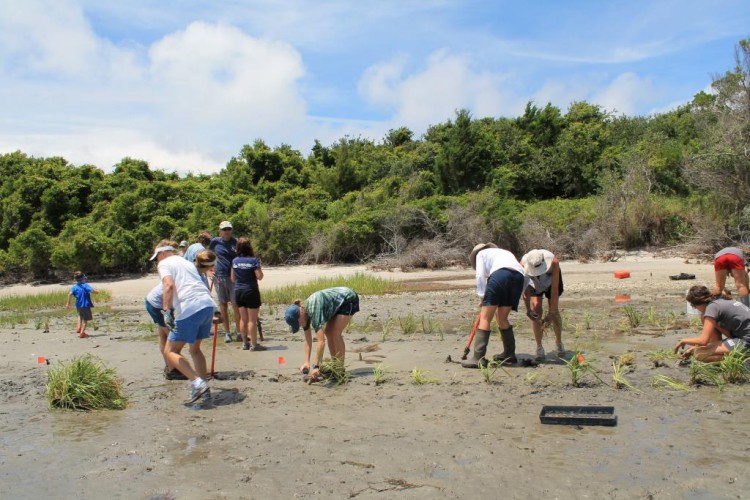A group of enthusiastic volunteers helped plant Spartina alterniflora, or salt marsh cordgrass, at the Rachel Carson Reserve, a component of the North Carolina National Estuarine Research Reserve in Beaufort, N.C. The June 2014 planting event was part of a living shoreline demonstration project led by researchers from the reserve and NOAA’s National Centers for Coastal and Ocean Science (NCCOS). The project showcases alternative methods for stabilizing estuarine shorelines. Planted behind an oyster reef constructed in 2012, the Spartina will help prevent erosion, attenuate wave energy during storms, and provide habitat for fish, shellfish, and birds.

Along with partners from the North Carolina Coastal Federation and the University of North Carolina’s Institute of Marine Science, NCCOS provided expertise regarding Spartina placement, planting techniques, and fertilization needs. The busy afternoon of hauling, digging, and planting resulted in the establishment of approximately 5,000nursery-grown Spartina plants in rows following the contours of the shoreline. Spartina alterniflora was placed in lower elevations and S. patens at higher elevations. The partnership of federal, state, and academic institutions with volunteers of all ages and backgrounds proved a winning team for enhancing the demonstration project site and restoring an eroding area of the reserve.
For more information, contact Carolyn.Currin@noaa.gov or visit the Rachel Carson Reserve Facebook page. Take a peek at an outstanding time lapse video of the planting event produced by Miriam Sutton.
